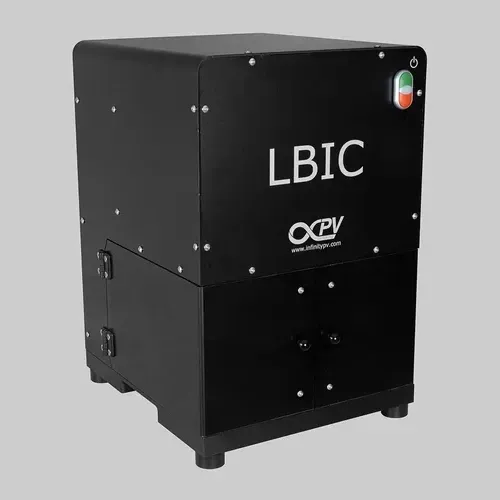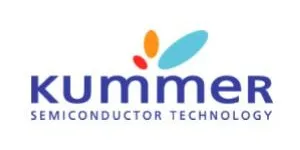
Laser Beam Induced Current (LBIC)
Products
Information
Ultrafast LBIC Mapping for Solar Cell Analysis
Ultrafast Laser Beam Induced Current (LBIC) mapping is performed using a laser spot with a diameter of 40 microns, modulated over a testing area of 250 x 250 mm². This method allows for the creation of detailed maps in just seconds. The practical resolution of the system is < 100 microns, depending on the surface of the solar cell.
Key Benefits of InfinityPV's LBIC Approach
InfinityPV’s LBIC system is inherently immune to noise, ensuring accurate results even in challenging conditions. It excels in mapping both concave and convex surfaces, making it an ideal solution for flexible solar cells. The turn-key system is controlled via the included infinityPV software, which features:
Auto Calibration
Active Area Calculation
Color Maps
Simple Scanning Area Selection
These features provide fast and easy imaging of any photovoltaic (PV) technology.
Wide Wavelength Range for Versatile Applications
With an accessible wavelength range of 400–1100 nm, this system is well-suited for mapping single junctions, tandem devices, and modules. Differences in junction ideality within a module may lead to variations in signal strength, but the system handles this with ease.
Defect Detection and Failure Analysis
LBIC maps generated by the infinityPV system allow for the easy identification of:
Defects
Coating Errors
Shunts
Inactive Photovoltaic Regions
Additionally, the system is ideal for identifying failure modes over time in solar cells and modules that have undergone accelerated ageing tests. It can highlight issues such as ingress of permeants and contact failures.
